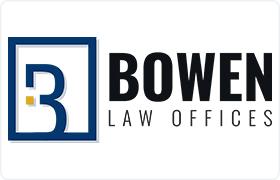Amargosa Valley Child Custody Lawyer, Nevada
Sponsored Law Firm
-
 x
x

Click For More Info:
-
Bowen Law Offices
9960 W. Cheyenne Ave. Suite 250 Las Vegas, NV 89129» view mapDivorce & Family Law Proudly Serving Clark County
Bowen Law Offices brings a wealth of litigation and courtroom trial experience to clients with various family law needs
800-357-1401
Includes: Guardianships & Conservatorships, Custody & Visitation
Not enough matches for Amargosa Valley Child Custody lawyer.
Below are all Amargosa Valley lawyers.
 Jerome Bowen Las Vegas, NV
Jerome Bowen Las Vegas, NV AboutBowen Law Offices
AboutBowen Law Offices Practice AreasExpertise
Practice AreasExpertise
